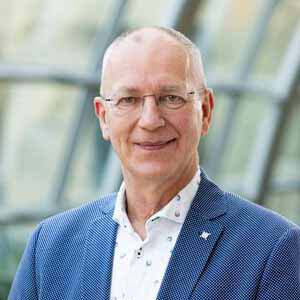Recente updates:
Volgens de KNMG is jongensbesnijdenis een aantasting van de rechten van het kind en de grondwettelijk vastgelegde onaantastbaarheid van het lichaam. Ontmoedigen, luidt daarom het standpunt. De praktijk kent voor- en tegenstanders, bleek ook op de debatavond van 13 maart 2012, georganiseerd door het KNMG district Amsterdam. Over medische complicaties, voorlichten in de praktijk, vrijheid van godsdienst en de rechten van het kind.
Incentives for organ donation, currently prohibited in most countries, may increase donation and save lives. Discussion of incentives has focused on two areas: (1) whether or not there are ethical principles that justify the current prohibition and (2) whether incentives would do more good than harm. We herein address the second concern and propose for discussion standards and guidelines for an acceptable system of incentives for donation. We believe that if systems based on these guidelines were developed, harms would be no greater than those to today's conventional donors. Ultimately, until there are trials of incentives, the question of benefits and harms cannot be satisfactorily answered.
Patiënten zonder toestemming gefilmd op Eerste hulp van een ziekenhuis. Deelname aan Pauw en Witteman
Imagine a Samaritan living kidney donor, who some time ago has anonymously donated one of his kidneys to a patient on top of the waiting list. He now contacts the transplantation centre once again, to donate part of his liver. The Centre, startled by this idea, refers him to the regular screening procedure for all Samaritan donations. It turns out that his wish is well-informed, voluntarily made and that he is competent to decide. We acknowledge that a donor's wish should not be followed in all cases, even though this wish is a clear expression of his own free will. However, a refusal must be based on sound moral reasons and it is less clear what reasons these might be. We outline the most common arguments for refusal, assess these arguments in terms of strengths and weaknesses, and show which arguments, if any at all, are most promising. We conclude, firstly, that we should only assess risks (which include motivations), not judge relationships, and secondly, that it is not a transplant centre's mission to carry out a donor's life project.
Gezonde zeventig plussers die niet meer willen leven; hoeveel zijn dat er eigenlijk?
Ethicus Gert van Dijk van de KNMG vraagt het zich af.
De burgerinitiatiefgroep Uit Vrije Wil vindthoe dan ook dat deze mensen hulp moeten krijgen bij zelfdoding.
Besnijden van jongens is gevaarlijk en een inbreuk op kinderrechten. Van regering tot religieuze voormannen, iedereen moet hierin zijn verantwoordelijkheid nemen.
Voor sommige patiënten geeft orgaandonatie na euthanasie zin aan een als zinloos ervaren sterven. Deze combinatie roept wel complexe vragen op. Voelt een patiënt zich bijvoorbeeld nog vrij om de euthanasie te weigeren als de voorbereiding voor de orgaandonatie al in volle gang is?
Op 16 maart 2011 presenteerde de initiatiefgroep Uit Vrije Wil het wetsvoorstel ‘stervenshulp aan ouderen’. Dit wetsvoorstel is bedoeld om ouderen hulp bij zelfdoding te geven als zij hun leven ‘voltooid’ achten. Maar wie zich vrijwillig overgeeft aan toetsing door anderen, riskeert het door die ander te worden afgewezen. Wie zekerheid wil omtrent het eigen levenseinde, zal daarom toch echt tijdig zelf maatregelen moeten treffen.
Bewuster omgaan met verschillende visies op lijden en sterven.
Zoals de goudvis zich onbewust is van het water waarin hij zwemt, zo zijn hulpverleners zich vaak onbewust van hun eigen cultuur. Bij de zorg voor terminale patiënten kan dit conflicten veroorzaken. Want de ‘moderne’ visie op de dood die veel zorgverleners hebben, is er maar één van vele.
Morele problemen vragen om een multidisciplinaire benadering. Transparantie betekent openheid naar de patiënt, maar ook intercollegiaal overleg
